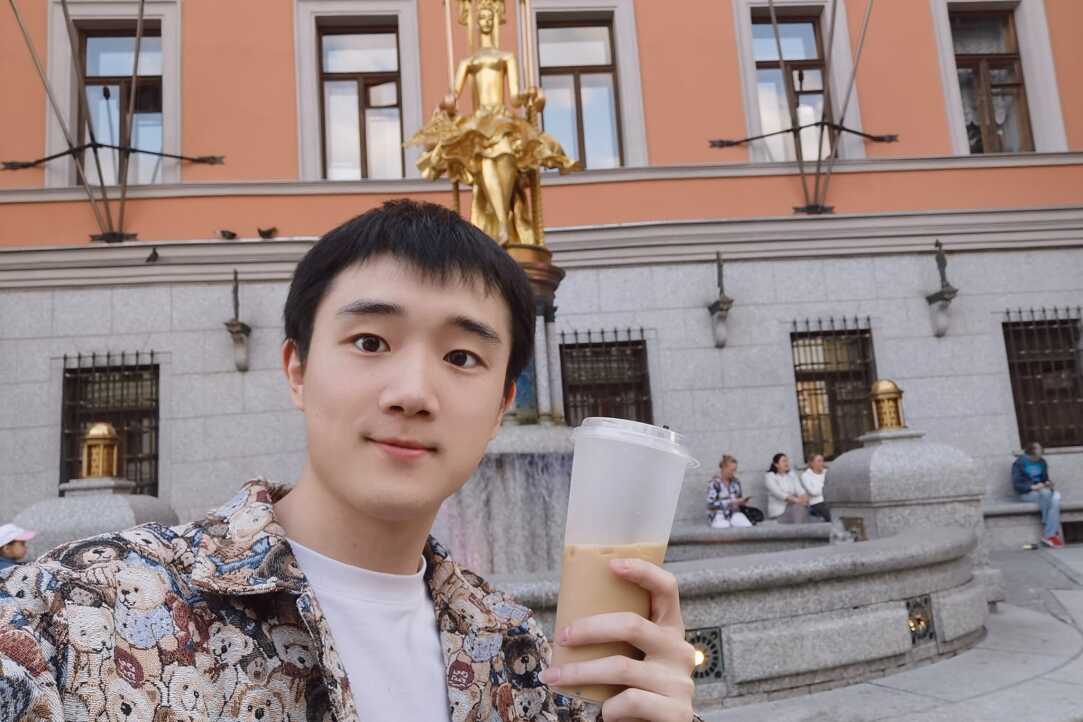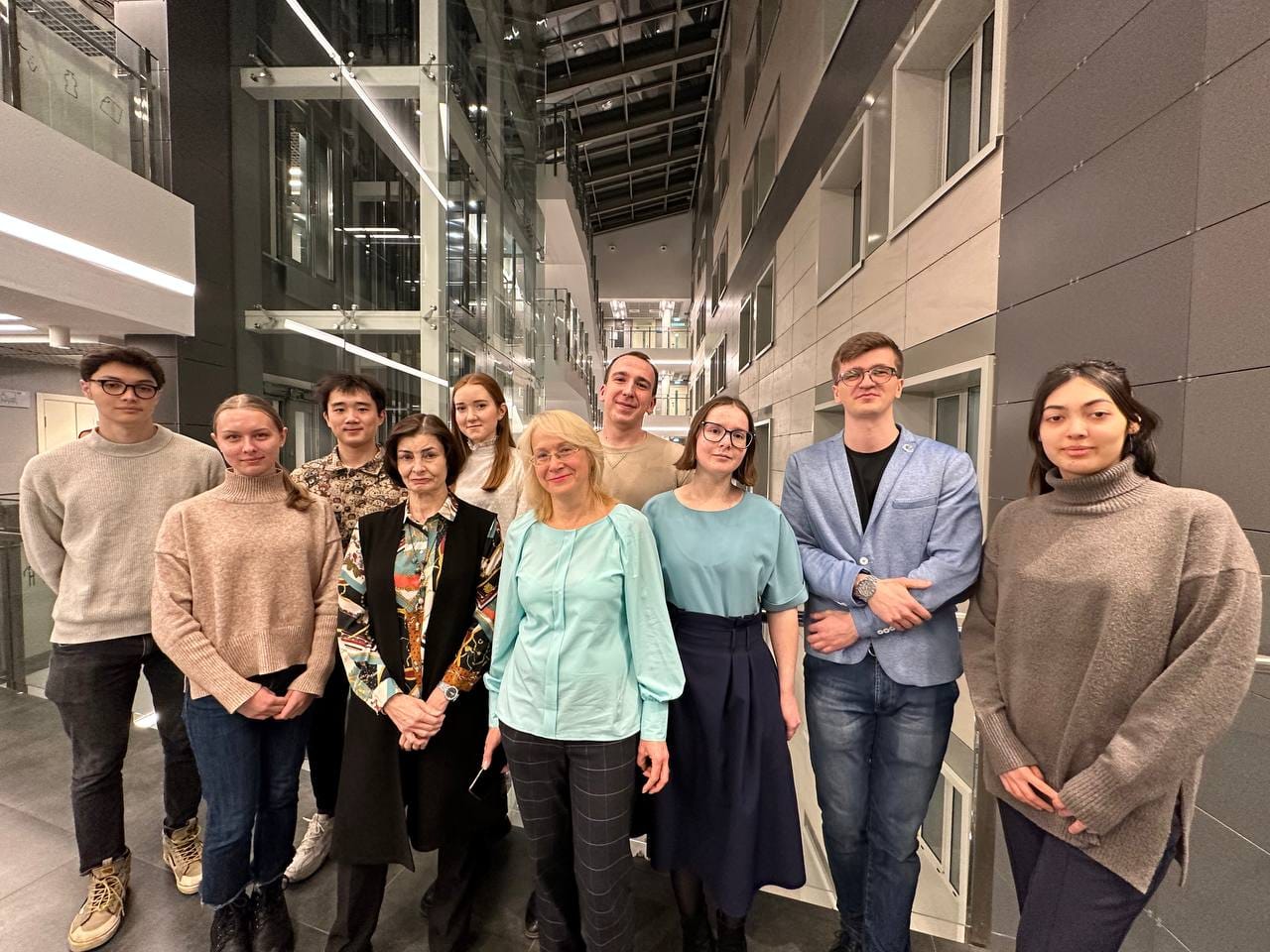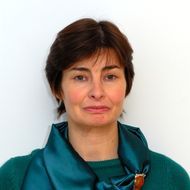‘At HSE University, We Receive Substantial Support for Our Research’

Wenrui Zhang, from China, is a recent graduate of the Master’s in Economics and Economic Policy at the HSE University Faculty of Economic Sciences. Having successfully defended his master’s thesis on the impact of COVID-19 on the incomes of vulnerable groups, Wenrui has set his sights on publishing his research and enrolling in a doctoral programme at the university. The HSE News Service interviewed Wenrui about his achievements so far and his goals for the future, and also spoke to Prof. Elena Kotyrlo, his academic supervisor.
Wenrui Zhang
— How did you choose your research topic?
— One of the things that makes the Master's programme at HSE University stand out is that it is more academic, which is reflected in the fact that all students of the Faculty of Economic Sciences have to work on projects.
In my first academic year, I participated in the research project ‘Poverty, Inequality and Economic Development’ led by Prof. Elena Kotyrlo, during which I wrote a term paper exploring the regional income disparities between Russia and China. In the second academic year, I moved to another research project ‘Labour Market Policy Evaluation’, also led by Prof. Elena Kotyrlo. In this project, my research shifted to investigate the impact of COVID-19 on the labour market and whether it is transferred to the incomes of vulnerable groups.
The study focuses on the heterogeneous impact of COVID-19 on income across different vulnerable groups, professional groups, regions and income groups, as well as identifying specific groups whose income is significantly affected by COVID-19
Although our research is conducted within the framework of a project, it does not mean that we do not have the freedom to choose a specific topic; you can decide it according to your interests. However, you will undoubtedly need to consult with and receive helpful advice from your project supervisor.
— What role did your academic supervisor play?
— Prof. Elena Kotyrlo is an excellent supervisor and she has my utmost admiration. She has excellent teaching skills and a spirit of endless pursuit of knowledge, and always keeps a friendly and supportive attitude towards all students. I meet with her every 1–2 weeks in project seminars.
During the project seminars, all participating students take turns to report on the progress of their research and have rich discussions with the supervisor and all other participants
Moreover, Prof. Kotyrlo also taught some important knowledge to help us acquire ample research skills, including but not limited to research methodology and econometrics closely related to our research topics. More importantly, we can also book individual consultations with Prof. Kotyrlo during office hours, and she is always eager to help us. This means that we can receive substantial support for our research from our supervisor.

— Where did you get the data and how did you work with it?
— At HSE University, students have access to a wide range of resources to conduct research.
In my case, accessing the data and working with it was not difficult and we were taught everything we needed to know
My study combined the Propensity Score Matching method with Difference-in-Differences models for linear and quantile regression in order to obtain average treatment effects and quantile treatment effects for different groups, based on the Russia Longitudinal Monitoring Survey - Higher School of Economics (RLMS-HSE). It is publicly available data with high credibility and long-term follow-up.
— What were you looking for in your research? Did you find any interesting facts or correlations?
— The study focused on exploring the heterogeneity of COVID-19 effects on income, such as gender differences, regional and occupational differences, and differences across income groups. More importantly, the aim was to reveal the extent to which the income of different vulnerable groups is affected by COVID-19.
Preliminary findings demonstrate that the incomes of workers with lower education, single parents and young workers are negatively affected by COVID-19 to a greater extent
In addition, a large body of literature suggests that the income of parents with multiple children and workers with disabilities could be significantly affected by COVID-19. However, this situation was not observed in the findings. This may be due to the fact that in Russia, these two vulnerable groups are better protected by the government. But it is too early to say, as the study is still being iteratively improved. I expect to find more exciting results.
— What do you plan to do next with this research?
— Earlier this year, I joined the research and study group ‘Estimation of the Impact of Macroshocks on Socio-economic Processes in the Regions of Russia’ led by Prof. Olga Demidova and Prof. Elena Kotyrlo. The team has received a grant from the HSE Academic Foundation to support our academic research. This also means that there is an opportunity for my research to be published in the near future. I am currently working on this with the help of Prof. Elena Kotyrlo and other team members.
— What do you plan to do after graduation and beyond?
— In March, I passed the competitive selection process and I was accepted into a doctoral programme at HSE University based on the Russian Government Scholarship (quota). This means a lot to me, since it will set me up well for my academic career.
For the future, I hope to become an outstanding young scholar in the field of the Russian economy and Sino-Russian economic and trade cooperation.
If I am successful in getting my PhD at HSE University, I plan to do post-doctoral research at a leading institution in China or Russia and then work towards a teaching position at a leading university
— What are your overall impressions of your studies at HSE?
— Everything at HSE University is excellent in my eyes. In fact, I originally wanted to thank certain people, but I found that all the professors and staff I have come into contact with at HSE University deserve to be thanked. The list is too long, but thank you for all your help and kindness.
One of the more important points I would like to emphasise is that HSE University is known for its strict educational standards and leading academic reputation. Therefore, I strongly believe that applying to HSE University is a good choice for all students who have the talent and study hard enough. One of the sentences I often hear is: ‘it may not be perfect, but let’s find a way to improve.’
HSE University is a young university, but there is a spirit of endlessly seeking solutions to problems
The last thing I would like to say to new arrivals is ‘Welcome to HSE University.’

Elena Kotyrlo, Professor at the Department of Applied Economics, Doctor of Sciences in Economics, PhD in Economics
On July 7, Wenrui Zhang graduated from the master’s programme in Economics and Economic Policy (Applied Economics Track) at the Faculty of Economic Sciences. During his studies at HSE, I supervised his research. Wenrui expressed an interest in poverty and policy evaluation in the labour market. He came from China and was eager to do a comparison of living conditions in China and Russia. However, we decided to conduct research on Russian data due to its availability. He worked with HSE-RLMS data and showed both interest and skills in studying vulnerable groups in the Russian labour market at the time of COVID-19. The topic has a high relevance to income policy and the evaluation of pandemic outcomes.
I enjoyed reading his paper. The text thoroughly presented a literature review and the quality of data and justified the application of econometric techniques. For 2019–2020 data, Wenrui employed difference-in-difference with inverse probability weighting on the first step (IPW-DD) and the quantile treatment effect evaluation with the same first step (IPW-QDD). These are advanced techniques, but Wenrui has done a good job at explaining the methodology and ambiguity of the studied effects. At the moment we are working on a paper for publication based on his Master’s thesis.
Being an extremely motivated and hardworking student, Wenrui was invited to the research project ‘Estimation of the Impact of Macroshocks on Socio-economic Processes in the Regions of Russia (on the example of COVID-19)’ funded by the Academic Fund Programme at HSE University. He was one of the most active participants in seminar discussions.
I would like to congratulate Wenrui, as he has already enrolled in a PhD programme at HSE. I wish him success in the academic career he has chosen.

